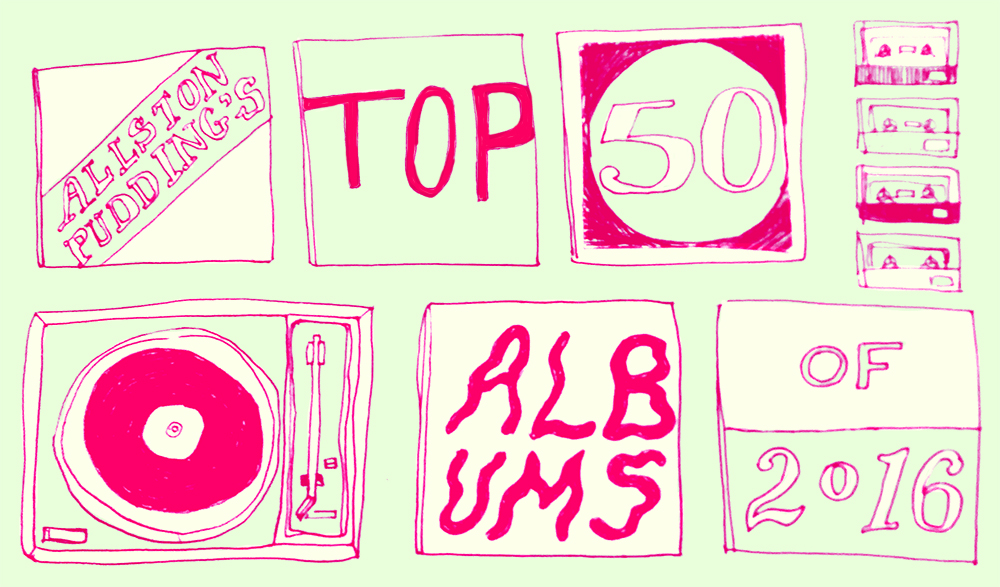
Greetings humble readers: we have made it to our top 20 favorite albums of the year. You are in for a real treat. A mix of debuts and well-crafted albums from some staple Allston Pudding favorites lie within. It should be no question as to who holds our top spot this year, but all of the diverse albums within share a connection: a celebration of identity and self. Powerful albums from artists like Mal Devisa, Chance the Rapper, Mitski, and Kanye West tackle topics of race and differences of upbringing. Angel Olsen, IAN SWEET, and Frankie Cosmos explore all facets of navigating relationships as a strong woman. Noname and IAN SWEET bring us millennial anthems, so we can all feel personally attacked by this relatable content. Listen and celebrate the beautiful music these artists gave us this year just in time for the holidays. Below our writers discussed why these albums were their favorites; these don't serve as reviews but as personal anecdotes.
-Christine Varriale, Editor-In-Chief
*=Local
20. Noname, Telefone
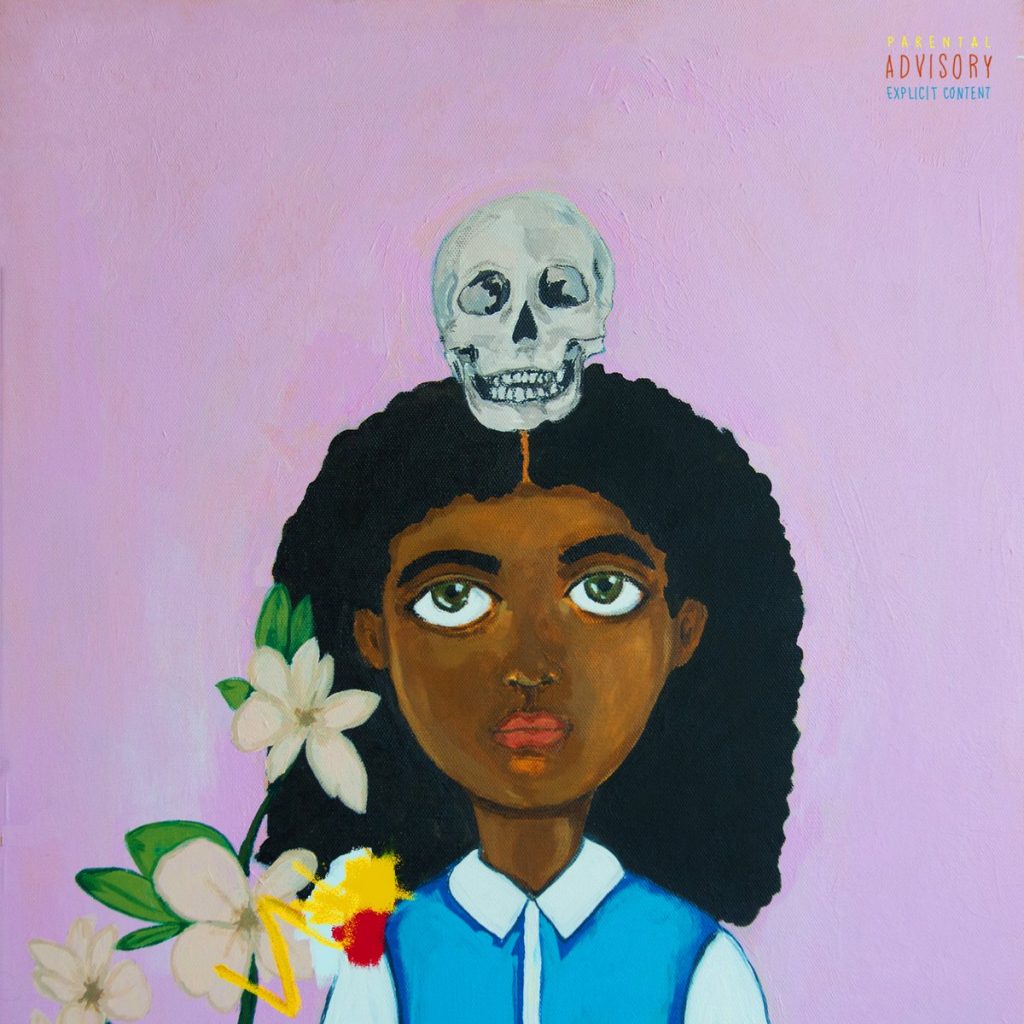
“When I initially created it, I wanted it to feel like a conversation with someone who you have a crush on for the first time,” Chicago based rapper/poet Noname told The Fader regarding Telefone, her heavily anticipated debut mixtape.
Three years after hype began snowballing in the wake of a verse on her friend Chance the Rapper’s Acid Rap, Noname meticulously shaped Telefone into a modern ode to the smart phone as a connector of lives through memes, voicemails, and texts. Still, the rapidly fading idea of actually calling a crush to verbalize butterflies in your stomach feels vital in the richly detailed world Noname builds on Telefone.
Amidst hazily lush production, Noname recalls days of juking in backseats to B2K and being in love with her pair of KSWISS sneakers (“Diddy Bop”) with the same hushed, yet confident delivery as when she’s attempting love songs to women facing abortion (“Bye Bye Baby”) or to her family and friends with the notion that no one is “safe in this happy city” (“Casket Pretty”) Weaving layers of happiness, mourning, nostalgia, fear, and hope into every fiber of Telefone, Noname emerges with a vivid coming-of-age document as intimate as an hours-long phone call, yet as joyful as a inside joke-laden group chat amongst friends.
-Tim Gagnon
19. Lucy Dacus, No Burden
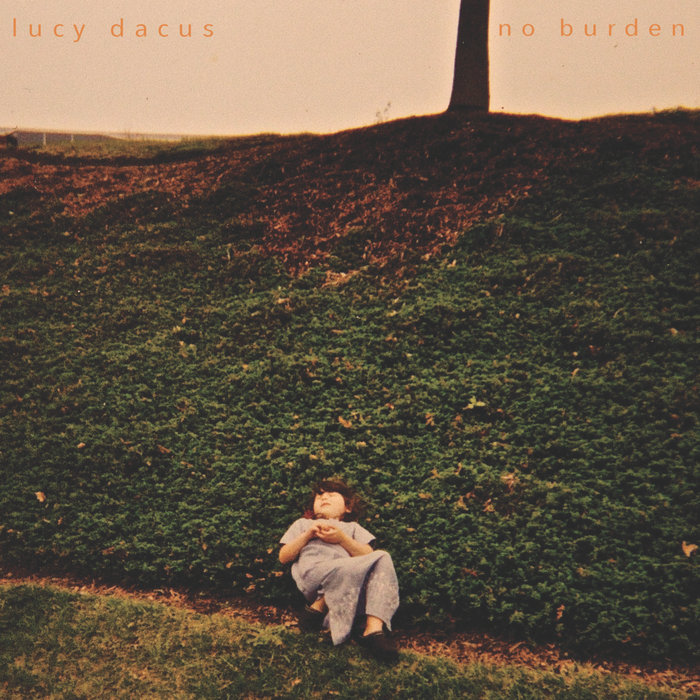
No Burden is Lucy Dacus' debut album, but it makes for an unconventional introduction. On opening track “I Don’t Wanna Be Funny Anymore,” she spends more time considering possible new identities than she does plotting any kind of concrete starting point, but as the album progresses, it reveals that this openness and imagination might be the most important thing to know about her. Her writing turns uncertainty into something that’s almost comforting; she accepts that she doesn’t know where life is going, but there’s curiosity and hope in her version of the unknown. Whether backed by an all-attitude blues riff (“Troublemaker Doppelgänger”) or building from a simple plea (“Map On A Wall”), every song mines strength from vulnerability and offers warmth for anyone who feels like they don’t have it all figured out just yet.
-Karen Muller
18. Frankie Cosmos, Next Thing
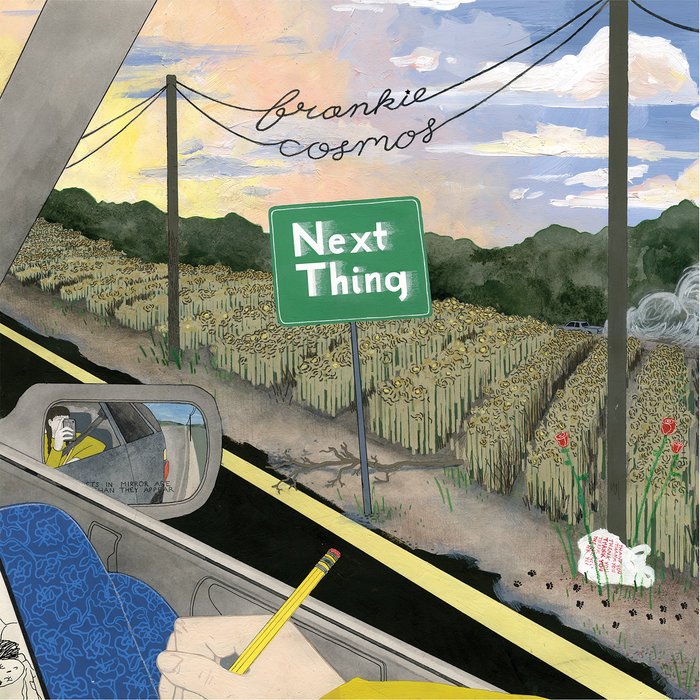
Greta Kline has been writing music prolifically under the moniker Frankie Cosmos for several years, but with Next Thing we see a shift of sorts. No longer does Kline sing of her relationship with 100% positivity. For what seems like the first time, we hear her sing about the struggles of being in a relationship, the dark parts of it, the work and emotional labor that goes into a relationship. It seems like A Real Big Bummer, but this discussion is a sort of relief. It brings a new humanity to the Frankie Cosmos catalog, one that I spent a lot of this year relating to while going through heartache of my own.
There was a song from Next Thing for every moment in my 2016. I adopted a dog this year and no longer had to think "If I Had a Dog." I fell for someone I've loved for a long time like a true "Fool," getting hurt in the process with mixed feelings just like Kline. (Ending with saying "goodbye what the fuck" just like in "Is It Possible/Sleep Song") The rerecorded and fleshed out version of "On the Lips" Kline wrote years ago has found new life on almost every mixtape I made for a crush this year. I found inspiration and support from friends like Kline sings about in "Embody," dreaming of seeing the world and traveling to India this November. I could go on forever, because the best part about Frankie Cosmos' Next Thing is that it leaves you able to find a reason to listen to every song through its 29 minutes.
-Christine Varriale
17. Anderson Paak, Malibu
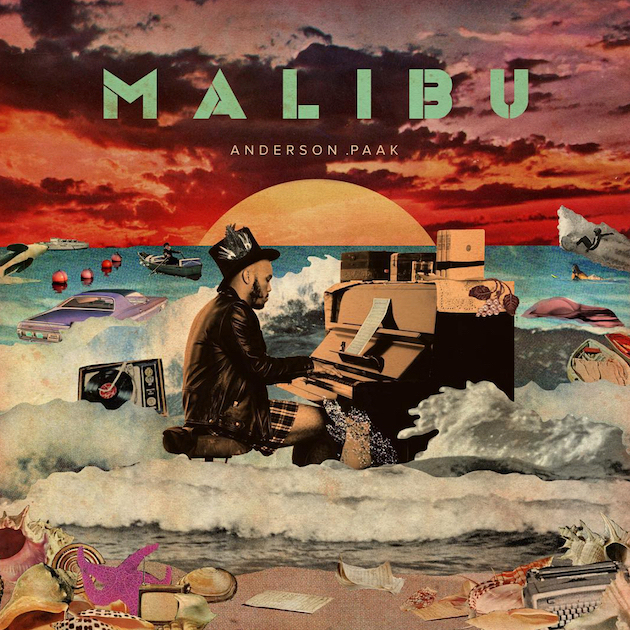
“Fuck fame, that killed all my favorite entertainers,” Anderson .Paak emphatically delivers in his signature rasp around the halfway mark of lead single “The Season/Carry Me”. A few months later, the line was auspiciously absent when .Paak performed the “Carry Me” portion to Stephen Colbert and, assuredly, a couple million Late Show viewers just coming around to the 30-year old singer/rapper/drummer’s electric live presence.
.Paak’s only going to find himself contradicting that line again and again after the genius of his sophomore effort, Malibu, continues its sweep of the known universe. Bolstered by his six(!) features on Dr. Dre’s career-revitalizing Compton last year, .Paak took the opportunity to double down on his triple threat abilities, crafting an album of buttery neo-soul and gospel-enriched hip hop that was practically tailor-made for his voice and kit to sprawl out on. The positively Outkast-influenced “Am I Wrong?” and Kaytranada-produced “Lite Weight” prove .Paak’s ability as a master of navigating dance-ready singles (although his criminally underrated debut Venice proved that repeatedly). It’s his ease at storytelling though that pushes Malibu into essential 2016 listening, taking on a tumultuous upbringing in album opener “The Bird” and weaving a modern rags-to-riches story of couch-hopping homelessness, marrying his wife under the threat of deportation, and finding new ambition with the birth of his son.
Anderson .Paak may continue balking at fame and all of its poisons for all we know, but with an album as heartfelt and realized as Malibu in his arsenal, I imagine there will be little to worry about in his positivity-guided rise to the top.
-Tim Gagnon
16. Pinegrove, Cardinal

Alt-country doesn't always garner critical acclaim across the board, but the magic of Pinegrove is hard to ignore. New Jersey's DIY act unfurls total authenticity on Cardinal, a record of cracked falsettos, solipsistic moods, and platonic love so earnestly articulated that it's hard to keep your heart in check. There's a reason Pinegrove bookend the record with "Old Friends" and "New Friends" and why both songs punch you in the gut when played in order. Brevity and charm keep the album from losing its footing. With only eight songs to its name, Cardinal stands tall from its intent, a record of tracks trimmed to be remembered on their own and as a whole. So eight kids went for it, and they did the damn thing. Ardency wins in a year of unrelenting sorrow. A joyful guitar solo on "Then Again" offers a similar release of tension as Evan Stephens Hall's yelling on "Visiting," and each time it plays it bursts with emotion, reminding listeners that they too can do the same if they remind themselves what to be grateful for.
-Nina Corcoran
15. Mothers, When You Walk a Long Distance You are Tired

The English language is ripe with synonyms, yet it's still missing a word to describe the overlap of despondency and optimism. Frontwoman Kristine Leschper gets close to finding a way to describe it on Mothers' debut LP through, funnily enough, periphrasis. “We lived unloved in unmade beds/ You wore me like a necklace/ You closed me like a locket,” she sings on "Too Small For Eyes." On "Blood Letting," she does it again: “God is stuck singing himself to sleep/ I am not the only one.” Her lyrics are verbose in terms of structure, not details, and because of that she taps into a type of in-between: the overlapping space of gratitude and fear, inner peace and unrest, hopelessness and contentedness. Mothers rolls with uneven tempos and roaring indie rock cadences, a dance of sorrow within the indie rock-meets-folk canon, but what makes their first full-length stand out is the fearlessness of its vulnerability, something that's still raw to the touch no matter how many times you listen to it.
-Nina Corcoran
14. Japanese Breakfast, Psychopomp
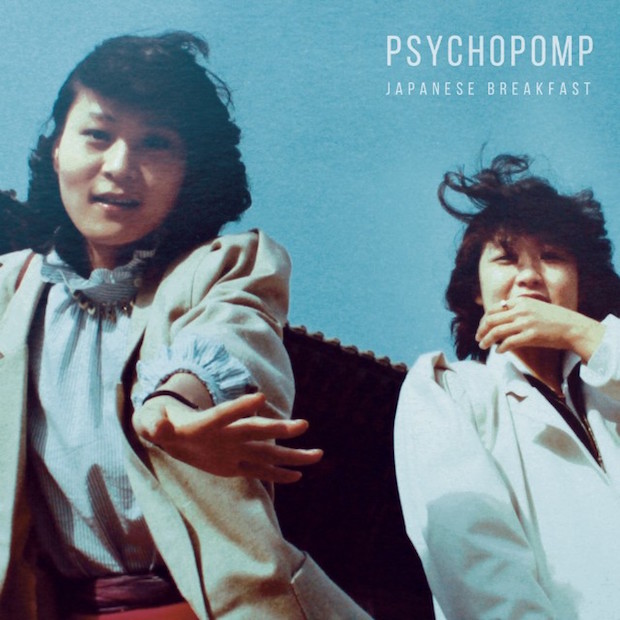
Over time there's knowledge obtained to shield and spear pain, but no matter the past experiences and advice, loss of a loved one always leaves us empty handed. Michelle Zauner (Little Big League) documented the wounds of her mother's passing with Psychopomp. Through wide stretching synths, heavy riffs, and aching truth, the album translates the feelings of the unfathomable, with precision. Few pieces of art can encapsulate disorienting dread like"Heft" and "Psychopomp". There's an ease in having these feelings made tangible, and its weight moves you to live with utmost compassion.
-Lauren Moquin
13. Radiohead, A Moon Shaped Pool
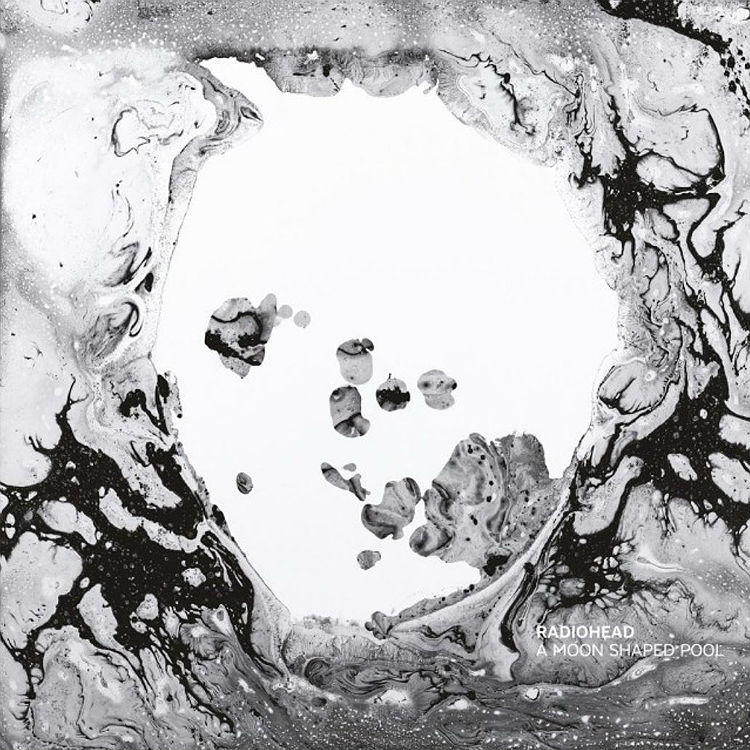
This was a tough album to listen to when it came out. Dropping amidst beautiful Spring weather in early May, this drowned-out downer of an album is packed with sad piano ballads (case in point: "Daydreaming") and dreamy orchestral arrangements courtesy of Jonny Greenwood. Usually a closed-off, private group, you get the feeling that Pool was venturing into more personal territory for the band. Of course, leadoff single "Burn the Witch" saw the group treading familiar territory and sent shivers down spines for its creepy depiction of xenophobia and surveillance ("We know where you live" is never reassuring to hear, no matter how much you enjoy Thom Yorke's counter-tenor).
But much more of the album's themes were informed by Yorke's separation from his partner of 23 years (a comparable timeframe to the band's own lifespan), and this created an album that struck much closer to home than previous Radiohead efforts. In many ways, A Moon Shaped Pool feels like a retrospective of Radiohead's career. Many of these tracks were written years ago and only just found a home on this album: "Burn the Witch" came from the sessions for Kid A; "Present Tense" dates to 2008; but, most poignantly, "True Love Waits," the album's closing track, is also one of their oldest songs. Early versions of the song date back to 1995 when it was played on acoustic guitars, and many subsequent attempts to record the song added more features. But the version that we've ended up with on AMSP reworks the melody onto the piano, and the repetition of the closing line "Please don't leave" may mark the most vulnerable moment for a group that has tried to shield themselves from public curiosity that comes with being one of the biggest bands in the world.
-Harry Gustafson
12. Car Seat Headrest, Teens of Denial
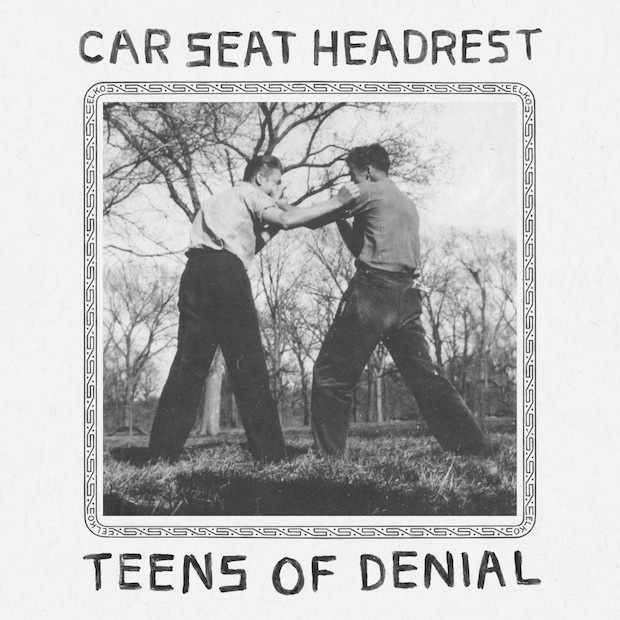
Over the course of a dozen-album Bandcamp discography, Will Toledo has developed a knack for writing expansive songs that defy predictability. Teens of Denial is his most ambitious and developed effort yet, reworking familiar rock structures to make room for more complex storytelling, taking the energy that typically maxes out in four-minute songs and figuring out how to make it work in eight and eleven. Tracks hurtle through turbulent moods and guitar lines feeling like a frantic stream of consciousness while still fitting into a neat narrative. But while the album’s writing is full of bold moves, the story it tells is about stagnation and escapism. The closest it comes to a resolution is a dissatisfied acceptance of circumstances, but it’s more powerful than any clean conclusion. A happy ending might be the ideal, but the opposite makes a better motivator.
-Karen Muller
11. Whitney, Light Upon the Lake
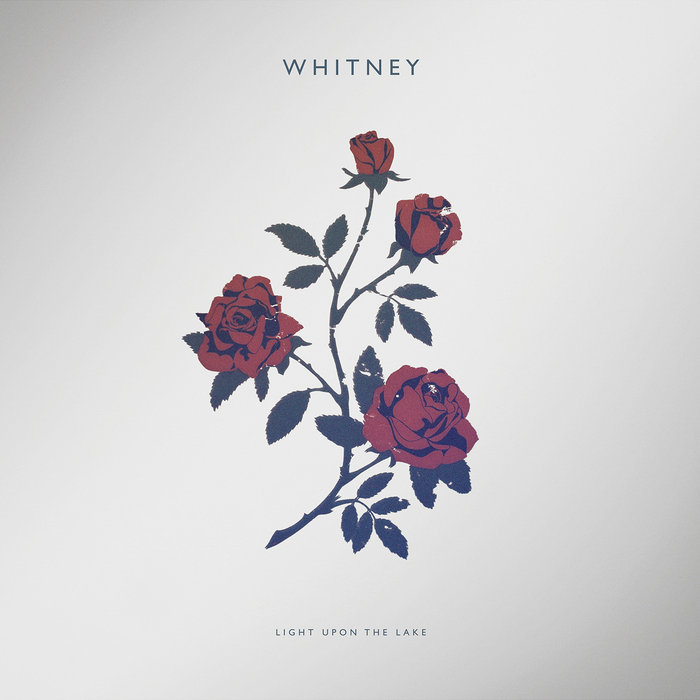
Light Upon The Lake is the kind of leisurely confident debut record that goes down like a couple High Lifes with college buddies; the question is whether you think the Champagne of Beers and old friends sounds like warm nostalgia or empty grasps at the past.
To be fair, Whitney seem like the kind of band that worries the same thing. Lake’s singles are deceptively mournful in their soft rock adoration; “Golden Days” is plenty wistful, but singer/drummer Julien Ehrlich’s pinched falsetto keeps things from getting too dour. Quieter moments like album opener “No Woman” and “Dave’s Song” serve failed relationships and waywardness with a side of guitarist Max Kakacek’s Southern-fried noodling, but delivered with absolute earnestness and conviction.
Lake is a record that, for better or worse, doesn’t fret over sounding seamless among your parents’ dusty record bins. In a year of pained longing for the past, Whitney’s songs feel tailored for an age group growing tired of breakups and disillusionment, yet balks at the idea of “settling down.” In this ephemeral state, Lake feels both rootless and right at home.
-Tim Gagnon
10. Kanye West, The Life of Pablo
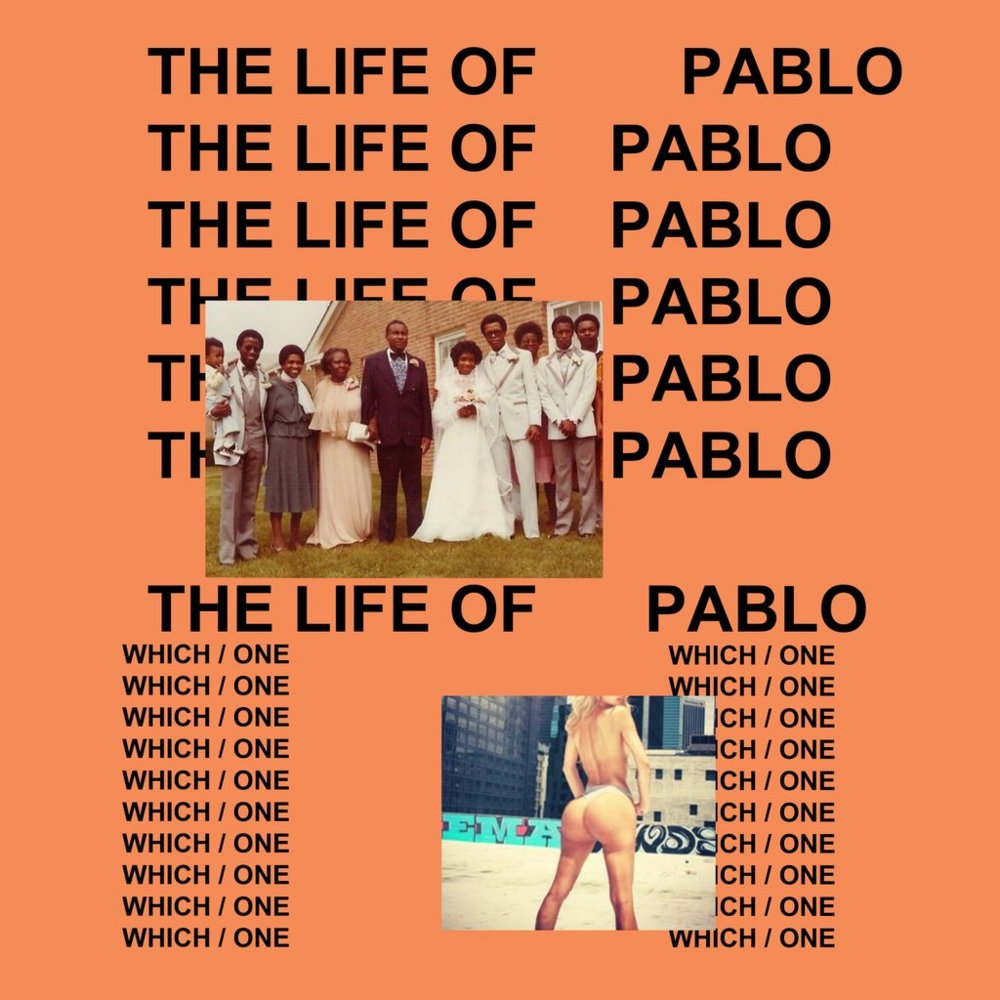
Kanye West is the complicated, creative, and genius messiah of our generation. Every iteration of West's career pushes him one step forward, working off his last creation to bring something new. With The Life of Pablo, West takes the visceral energy he wove on Yeezus and stitches in his old self through classic soul and gospel melodies and samples. This updated Kanye West continues his no holds bar attitude with rhymes riddling his past: his feud with Taylor Swift, his pink polo days, the jealousy of Ray J, etc. He reflects on it, churns it, and continues to come on top as the most powerful man in hip hop. If you miss the old Kanye, you're not listening deep enough.
-Christine Varriale
9. Solange, A Seat at the Table
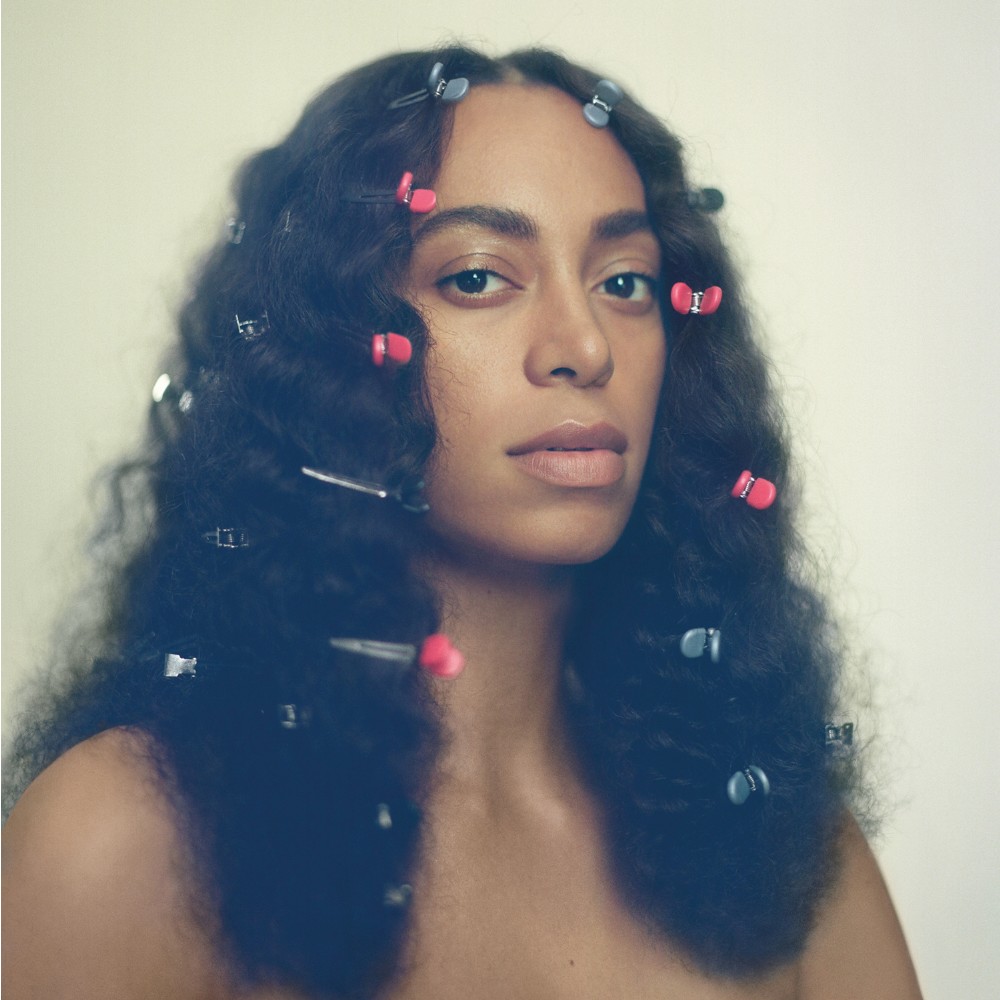
A Seat at the Table conveys the sort of power its title suggests. A quiet lean in, listening, watching, "Pass the wine, please. Yes, I was invited to the party."
Listening to Solange guide this album seems a lot like sitting down beside her, asking questions and, between sips, getting answers that inform about black female identity. To lightly pitter patter-ing beats, Solange does this through a personal narrative that builds from the roots out. She wrote much of the album at the starting line of her family's lineage: New Iberia, Louisiana. Stories and seeds of wisdom from her parents anchor the album with unforgettable authenticity and gratitude for elders who tell their stories in hopes that we'll be a graceful kind of angry in the future. See the transition between "Interlude: Dad is Mad" into "Mad" to hear exactly this.
Aside from "Cranes In the Sky" possibly being the most chill-inducing song of 2016, the entirety of Seat is a testament to soft strength. Solange is so certain of herself here. Whispering can be just as loud as shouting, given that all true daring comes from within.
-Becca DeGregorio
8. LVL UP, Return to Love
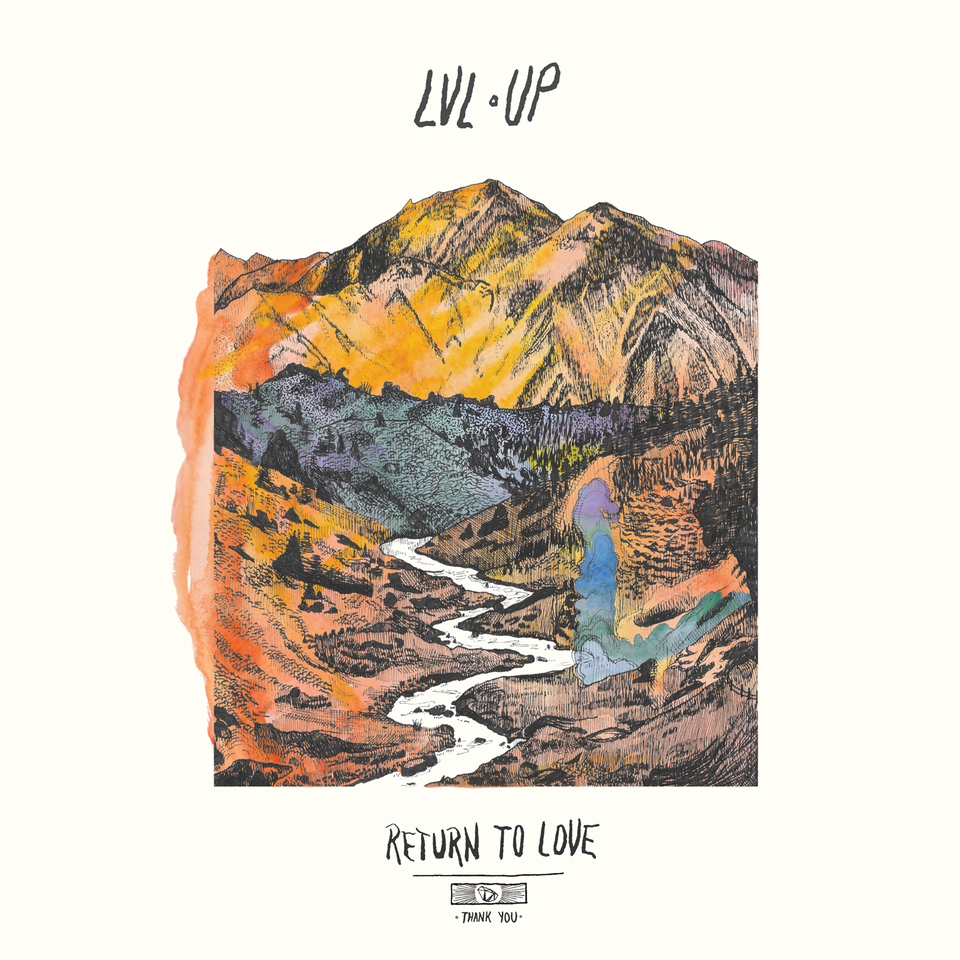
Return to Love marks LVL UP’s third album release as well as their debut through the infamous Sub Pop Records. The album’s first track, “Hidden Driver,” starts off with a bang, immediately reacquainting all their fans with the warm, lo-fi pop sound that first made up the lovable SUNY Purchase originating band.
While LVL UP has seamlessly maintained their style in the two years since releasing Hoodwink’d, it is no question that Return to Love is a huge step forward for the band. Lyricists Mike Caridi, Dave Benton and Nick Corbo cultivate introspective songs that are more conceptual than any of their predecessors. Incorporating themes of love, spirituality, and inspiration, Return to Love attempts to process feelings rather than simply shout them at some unknown, angsty void. In fact on the fifth track “Pain,” Caridi delicately references Elliott Smith’s “Roman Candle” singing, “I want to hurt him, winter glow silence surrounding. I will watch from my window, painting reveries of his pain.”
However, the band’s newfound success is not only limited to patient lyricism, but new production methods as well. Throughout the album LVL UP plays with different accompanying sounds ranging from more acoustic driven instrumentation heard on track eight’s “Cut from the Vine,” to more elaborate synthesizers that especially shine through on the album’s final track, a seven minute ballad of sorts, “Naked in the River with the Creator.” This eloquently ties all of the above elements together making Return to Love an album that will not be forgotten.
-Ethan Hoffman-Sadka
7. Blood Orange, Freetown Sound
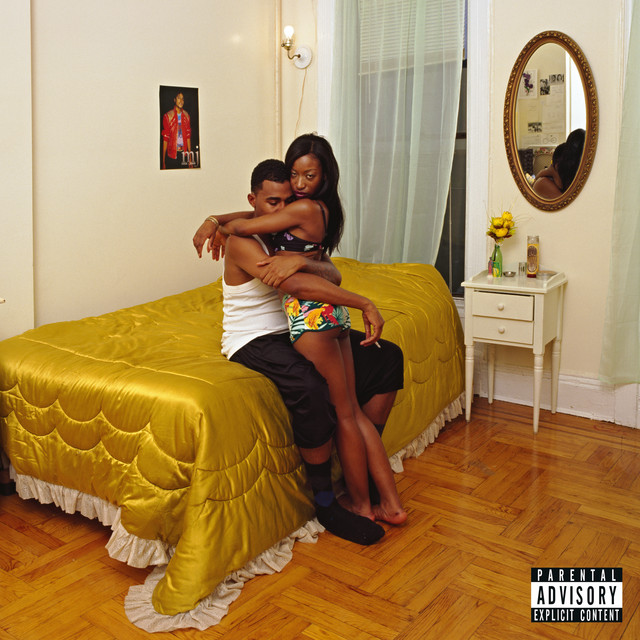
British composer Dev Hynes is no stranger to speaking up. He lives in a world in which he has to. That said, Hynes’s third album as Blood Orange fell under the shade of events proving its relevance. It dropped days after the Baltimore police officer Caesar Goodson Jr., who in April 2015 drove the van in which Freddie Gray was fatally injured, was deemed not guilty of all charges. There were more trials on other cases. There were inconsistencies. There were widened divides. There was Orlando. There was Brexit, and there would be much, much more.
Of the musical statements reflecting back on any and all this in 2016, Freetown Sound stated the most. Clocking in at almost an hour, the album is Hynes’s most sonically and editorially interesting composition to date, bursting with familiar noises of 80s-inspired funk and completely new sounds and techniques for telling the crucial story of being black yesterday, today and tomorrow. Woven together by the words of Ta-Nehisi Coates, audio pulled from the 1994 documentary Black is...Black Ain’t and other archived contributions, perhaps the most arresting moment of the entire album hits in the first song when Atlanta-based Ashlee Haze delivers an excerpt from her poem “For Colored Girls (The Missy Elliot Poem).” Saxophone builds beneath her testament and fades as she ends the opening track: “I will tell you that right now there are a million black girls just waiting to see someone who looks like them.”
If there isn’t an official canon for “21st Century Albums Reminding Us To Take Responsibility For The Path of History,” let’s declare one...and nestle Freetown Sound up against Kendrick’s To Pimp a Butterfly while we’re at it.
-Becca DeGregorio
6. IAN SWEET, Shapeshifter*
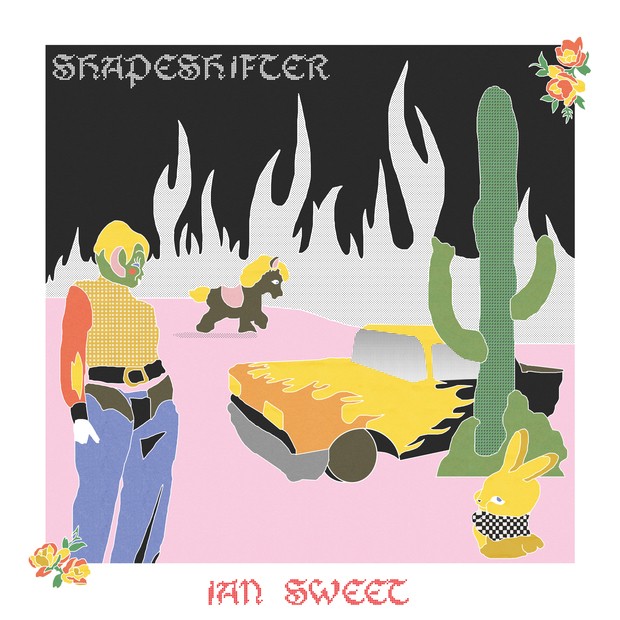
This album marked a huge “shift” for the formerly-Boston-now-sort-of-Brooklyn-based trio. The group made two big announcements prior to the release of Shapeshifter; first, that they would no longer be called IAN but IAN SWEET, and second, that they had signed to Sub Pop subsidiary Hardly Art, the label home to like-minded artists: Tacocat, Colleen Green, and Chastity Belt. What I love about this album is the depth and candor of lead singer Jilian Medford’s lyrics throughout. Her sickly-sweet soprano hiccups through high-pitch songs yoked with nostalgia for Michael Jordan, Nickelodeon, and skaters.
-Jenny Usovicz
5. Chance the Rapper, Coloring Book
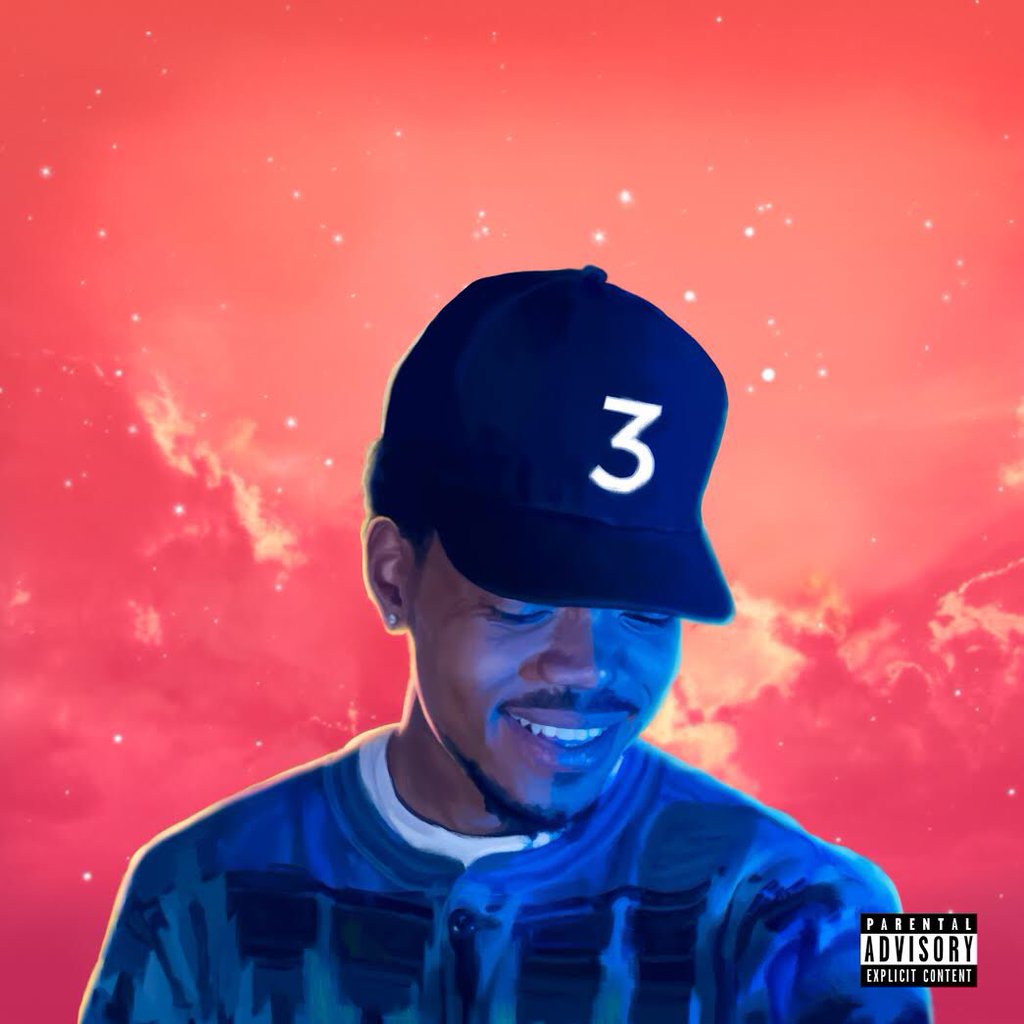
Entering 2016 with practically nuclear hype, the still-unsigned Chance the Rapper delivered mightily with his third project, Coloring Book, a triumphant and singular work that deserves a lot more credit than its “mixtape” tag might suggest.
Where Chance used his psychedelic experiences as a lens to explore cultural issues on 2013’s exemplary Acid Rap, the focus on Coloring Book is squarely on how his religion informs his life and career. Through 14 tracks, his faith is radiant, his wide-eyed exuberance makes borderline over-positive lines pop beautifully, and his sing-songy flow has improved greatly over the last three years, presenting a polished and original voice throughout.
The gospel-influenced production, meanwhile, is a natural fit. While Chance’s band The Social Network hold down excellent, horn-centric instrumentation, tracks from up-and-comers like Lido (“Angels”, “Same Drugs”), Brasstracks (“No Problem”), and Chance’s top influence Kanye West (“All We Got”) make for single-worthy highlights. He also managed to lock down pretty much every feature under the sun, nabbing everyone from 2 Chainz to Future to T-Pain in fun cameos that never distract from the overall vision of the project.
Cementing his legacy as the biggest unsigned artist we’ve yet seen as well as one of the most important young voices in hip-hop, Chance also achieved a rare feat: he put together an explicitly Christian album that’s just as accessible and enjoyable for non-Christians alike.
-George Greenstreet
4. Angel Olsen, My Woman
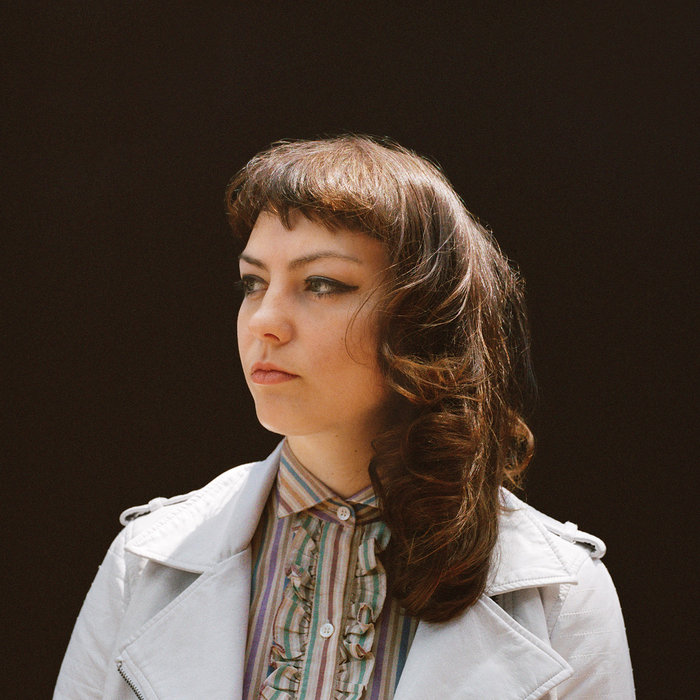
This year, Angel Olsen majorly deviated from the pared down, folk tunes she’s known for-- and it was amazing. On her 2016 effort, My Woman, Olsen fuses her signature bravado and all-consuming crescendos with the nostalgic sounds of '60s rock. Previous works like 2012’s Half Way Home and 2014’s Burn Your Fire For No Witness hinted at the fuller sound that’s evoked in her latest album, but nothing could’ve prepared us for the sheer femme power and confidence that Olsen produced on My Woman.
With singles like “Intern” and “Shut Up, Kiss Me,” the St. Louis artist proves her independence, while knowing she shouldn’t have to. If you’re yearning for mesmerizing music created and inspired by strong women, Angel Olsen’s got you covered.
-Jackie Swisshelm
3. Mal Devisa, Kiid*
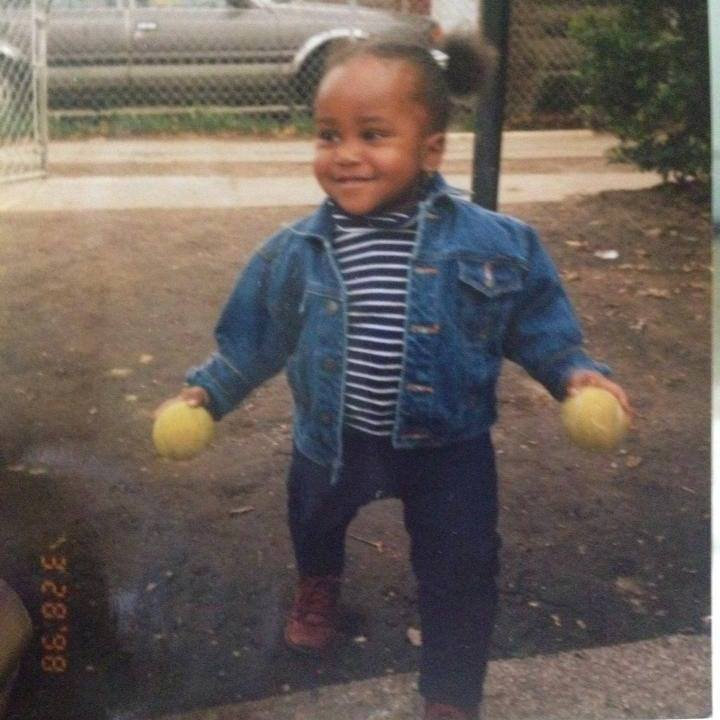
In a year made of awkward conversations, missteps, good news, bad news, fake news, heat and noise, Mal Devisa managed to cut through with a tiny flame of her own. Quietly on fire, Kiid is an album to grow close to despite all the places it sprints between: soft bass behind dynamic singing or heavy beats behind direct rapping. Kiid has the focus we all possessed when we “were little”. Tunnel vision on heartbreak as well as confidence, Mal Devisa is a self-described “lovesick woman,” a “dominatrix when the bass hits,” a full choir and yet, every listen through this album feels just as much about you, the listener.
Simply put, Kiid deserves simpler sentences than these. It’s a hug or at least a pat on the back for growing up and getting on. Each word speaks to feelings hosted in our stupid, tired, little bodies and because of this, tells the following truth: “You are solid gold.”
-Becca DeGregorio
2. Frank Ocean, Blonde
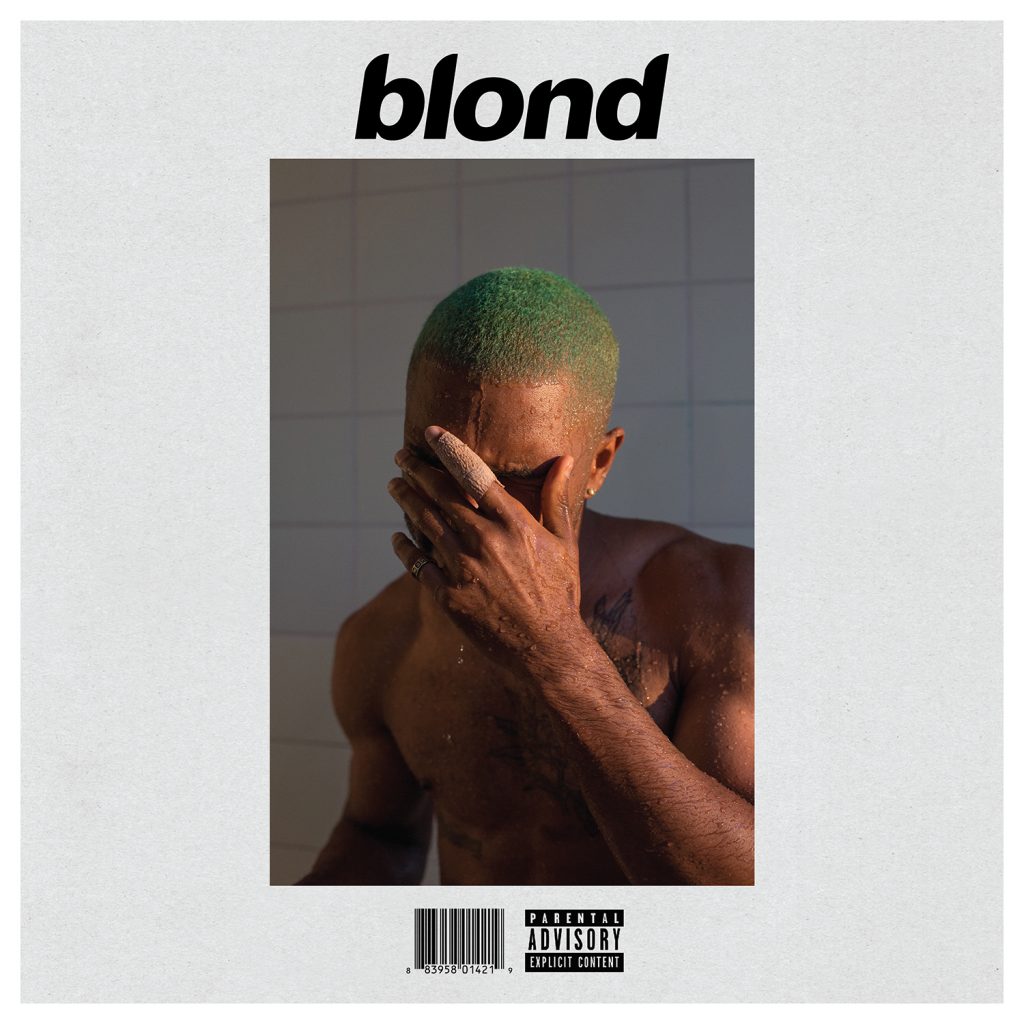
With album credits that read off like a musical dream team, it’s hard not to expect anything else but to be filled with glee and excitement when this new album got added to iTunes. That is the very last thing that we really wanted; we wanted Frank Ocean. Yes, the Frank that disappeared for four years after fulfilling our deepest musical wishes with Chanel Orange.
After teasing us with song snippets, movie soundtrack appearances, Frank Ocean’s new release became a performative art piece in itself. The wait, the heartbreak, the misleading rumors, the deception, and the stairways: he made us literally beg for a new album. It all seemed to be a part of this elaborative experience that a seemingly rejuvenated Ocean was ready to share with us, and he delivered. Blonde is jam packed with exactly what we expected, which is beyond anything that we expected. His honesty, his innocence in admitting his guilt, his decorative story telling laced with lush vocals, and the backing production we’ve never heard before came together to build something we feel like we’ve known our entire lives. That’s what Frank Ocean does: he brings out legends who have been MIA longer than him, like Andre 3000, for "Solo (Reprise)," because why wouldn’t he. He makes Beyoncé sing his back up vocals on "Pink & White," and had us make guesses about the unnamed vocalist for a couple months simply because he can. Frank Ocean has returned, bearing his intimacies, growing pains, and all the things we love, and are learning to love about him, to show us why he’s worth the wait. This is why Blonde easily is one of the top albums of 2016, at least to us.
-Cliff Notez
1. Mitski, Puberty 2
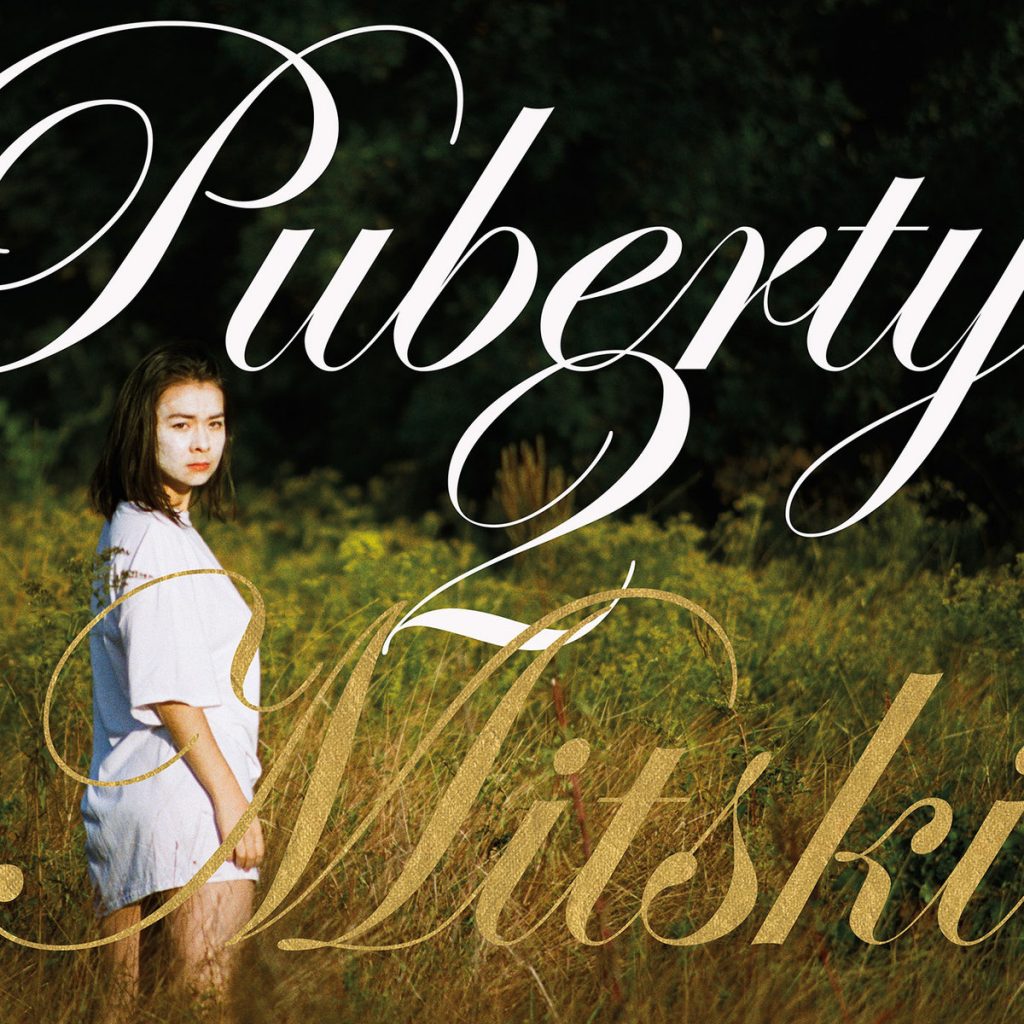
Puberty 2 is this moment in time. Happiness will be followed by resignation; we will once again have to clean. We will become numb to the immense pain the world causes us, only to be reminded of it when fireworks go off. We don't know how we're going to pay rent.
The 10 songs that make up Mitski's masterpiece of an album confront life as someone in their mid-twenties. The songs are intimate and personal, while being universal at the same time. "Your Best American Girl," the literal and figurative centerpiece of the record, is about trying to be someone you're not and knowing that it can't or won't work out. In "My Body Is Made of Crushed Little Stars," Mitski sings, "I better ace that interview / I should tell them that I'm not afraid to die / I better ace that interview."
Musically, the songs are diverse: the sparse fingerpicking of finale "A Burning Hill" contrasts with the clattering opener "Happy." Beyond that, these songs stand out among Mitski's contemporaries; they take risks where other artists might play it safe. It is a technical as much as it is a lyrical achievement.
The singular voice and artistic vision of Mitski's Puberty 2 makes it Allston Pudding's album of the year.
-Jeremy Stanley
